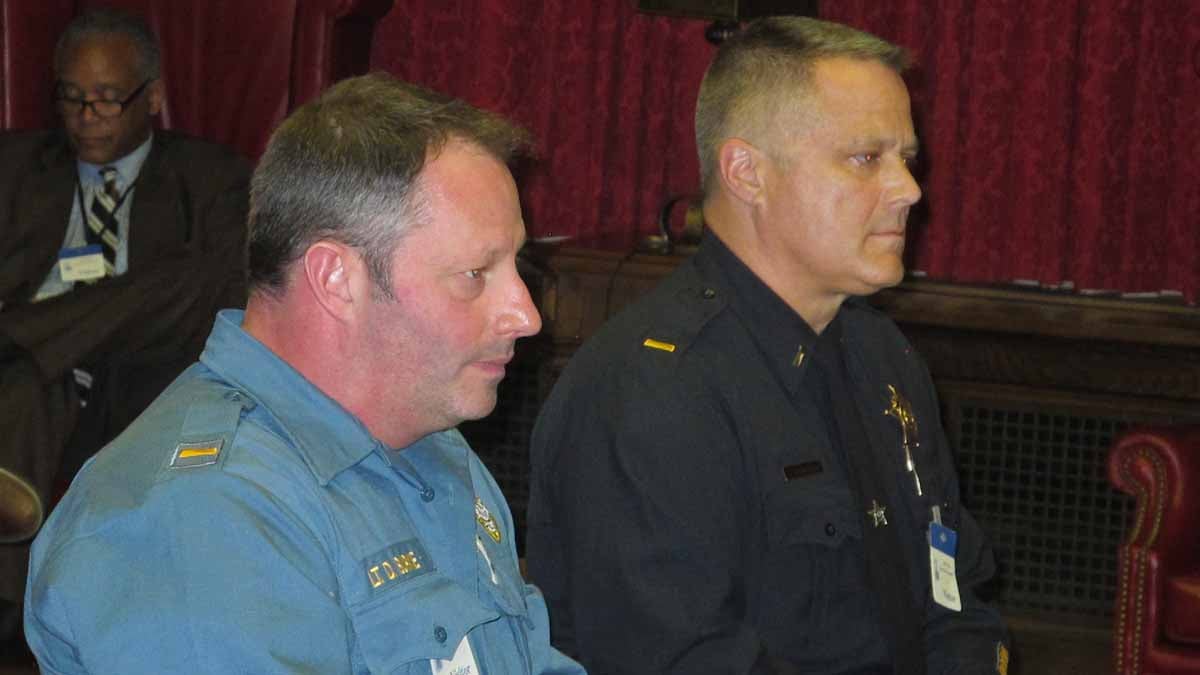Jail time, $100,000 fine considered for ‘swatting’ calls in NJ

Union County Sheriff’s Lt. Dennis Burke, left, and Mercer County Sheriff’s Lt. Harry Harbourt tell the Assembly Homeland Security Committee the swatting calls are happening across New Jersey. (Phil Gregory/WHYY)
The New Jersey Assembly’s Homeland Security Committee is backing a measure to increase the penalties for hoax calls known as “swatting” that draw large-scale law enforcement responses.
The bill would upgrade the crime of false public alarm, making it punishable by up to 10 years in prison and a $100,000 fine. Offenders also would have to pay the costs of the emergency response.
The FBI defines “swatting” as: Making a hoax call to 9-1-1 to draw a response from law enforcement, usually a SWAT team. The individuals who engage in this activity use technology to make it appear that the emergency call is coming from the victim’s phone. Sometimes swatting is done for revenge, sometimes as a prank.
Keyport resident Rob Ianuale, who said he was swatted twice, said anyone making such a call should get jail time.
“Because it’s not going to get serious until somebody actually does get hurt, until somebody gets shot by mistake, or somebody’s dog gets shot by mistake, or somebody else, somewhere else, dies because all of the emergency responders are at a fake call,” he said.
Union County Sheriff’s Lieutenant Dennis Burke says the hoax calls — called swatting because they can bring out a SWAT force — raise concerns for law enforcement.
“Worrying about diversionary tactics, that they may be calling police or emergency response or specific elements therein, a tactical response, to a certain area to commit something somewhere else, or probative just to see what time, style, and type of emergency response that may be elicited,” he testified before the Assembly committee Monday.
Burke , who said the calls are happening all over the state, said making public the voices of callers might not help in their apprehension.
“Swatting calls aren’t necessarily from around the corner,” he said. “A lot of times, they’re from other regions of the country. A lot of times they’re from outside of the country. So while there are always open investigative avenues, a lot of them may be futile, and they may hamper other investigative needs.”
WHYY is your source for fact-based, in-depth journalism and information. As a nonprofit organization, we rely on financial support from readers like you. Please give today.




